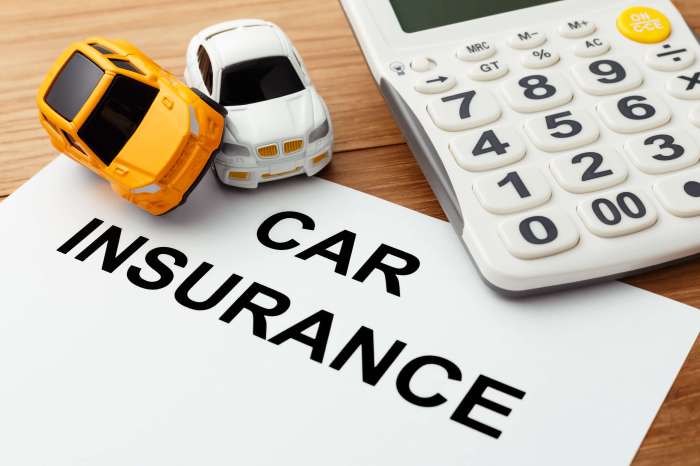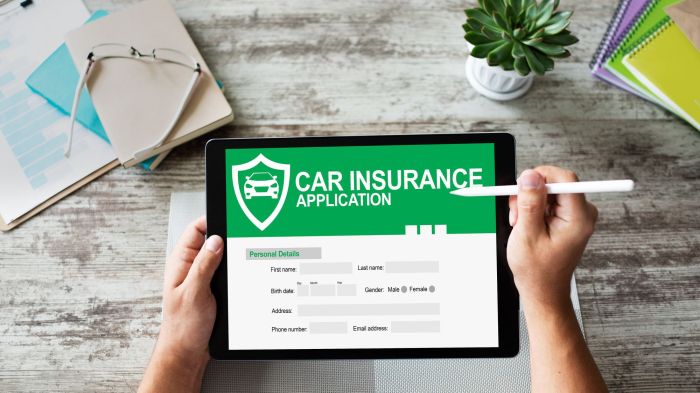Navigating the world of auto insurance can feel like deciphering a complex code. Understanding auto insurance quotes is crucial for securing the right coverage at the best price. This guide unravels the intricacies of obtaining, analyzing, and ultimately saving money on your auto insurance premiums, empowering you to make informed decisions about your financial protection.
From understanding the factors that influence quote variations to mastering the art of comparing quotes from different providers, we’ll equip you with the knowledge and strategies to become a savvy auto insurance consumer. We’ll explore the various coverage options, explain the jargon, and offer practical tips for negotiating lower rates, ensuring you get the most comprehensive and cost-effective protection for your vehicle.
Understanding Auto Insurance Quotes

Receiving an auto insurance quote can feel overwhelming, but understanding the factors involved simplifies the process. This section clarifies the components of a quote, helping you make informed decisions about your coverage.
Factors Influencing Auto Insurance Quote Variations
Several factors significantly impact the price of your auto insurance. These include your driving history (accidents, tickets), age and driving experience, the type of vehicle you drive (make, model, year), your location (accident rates, theft rates in your area), your credit score (in some states), and the coverage levels you choose. For instance, a young driver with a history of accidents will typically pay more than an older driver with a clean record driving a less expensive car. Similarly, someone living in a high-crime area might face higher premiums than someone in a safer neighborhood, even if all other factors are the same.
Types of Auto Insurance Coverage
Auto insurance quotes typically include several types of coverage. Liability coverage protects you financially if you cause an accident resulting in injuries or property damage to others. Collision coverage pays for repairs to your vehicle if it’s damaged in an accident, regardless of fault. Comprehensive coverage protects against damage to your vehicle from events other than collisions, such as theft, vandalism, or weather-related damage. Uninsured/Underinsured Motorist coverage protects you if you’re involved in an accident with an uninsured or underinsured driver. Personal Injury Protection (PIP) covers medical expenses and lost wages for you and your passengers, regardless of fault.
Common Terms Found in Auto Insurance Quotes
Understanding the terminology in your quote is crucial. Here are some common terms: Premium: The amount you pay for your insurance coverage. Deductible: The amount you pay out-of-pocket before your insurance coverage kicks in. Liability limits: The maximum amount your insurance company will pay for damages caused by an accident. Coverage limits: The maximum amount your insurer will pay for a specific type of coverage (e.g., collision, comprehensive).
Comparison of Auto Insurance Quotes
The following table compares sample quotes from different hypothetical insurance providers for a similar driver profile (35-year-old driver with a clean driving record, driving a 2020 Honda Civic in a medium-risk area). Remember that actual quotes will vary based on your specific circumstances.
| Insurance Provider | Annual Premium | Liability Limits | Deductible (Collision) |
|---|---|---|---|
| Company A | $1200 | $100,000/$300,000 | $500 |
| Company B | $1000 | $100,000/$300,000 | $1000 |
| Company C | $1350 | $250,000/$500,000 | $500 |
| Company D | $1150 | $100,000/$300,000 | $750 |
Obtaining Auto Insurance Quotes

Securing the best auto insurance rates involves a strategic approach to obtaining and comparing quotes. This process can be streamlined by understanding the various methods available and the information required by insurance providers. Efficient quote gathering leads to informed decision-making and potentially significant savings on your premiums.
Obtaining Quotes Online
Many insurance companies offer online quote tools, providing a convenient and efficient way to compare options. These tools typically involve a straightforward process where you input your personal and vehicle information. The system then generates a personalized quote based on your risk profile. Most online quote systems guide users through a series of questions, ensuring all necessary data is collected. This often includes details about your driving history, the vehicle itself (make, model, year), and your address. After submitting the information, the system quickly processes it and displays the quote, usually within minutes. Some websites allow you to compare quotes from multiple insurers simultaneously, simplifying the comparison process. Remember that the accuracy of the online quote depends entirely on the accuracy of the information you provide.
Comparing Quotes from Multiple Insurers
Comparing quotes from different insurers is crucial to finding the best coverage at the most competitive price. This can be achieved through online comparison websites or by directly contacting multiple insurance companies. Online comparison tools aggregate quotes from various providers, allowing you to easily see a side-by-side comparison of premiums and coverage options. When comparing quotes, it’s essential to ensure you are comparing apples to apples – that is, policies with similar coverage limits and deductibles. Failing to do so can lead to inaccurate comparisons. Consider factors beyond just the premium price, such as the insurer’s reputation, claims handling process, and customer service ratings. A slightly higher premium might be worthwhile if it comes with superior customer service and a more reliable claims process.
Information Required for Accurate Quotes
Providing accurate information is paramount to receiving precise auto insurance quotes. Insurers use this data to assess your risk and determine your premium. Necessary information generally includes your driving history (including accidents and violations), your vehicle’s details (make, model, year, VIN), your address, your age, and your occupation. Some insurers may also request information about your credit history, as this can influence your premium in some states. The more detailed and accurate the information you provide, the more accurate the quote will be. Inaccurate or incomplete information can lead to inaccurate quotes and potentially higher premiums later. It’s also important to be upfront about any past driving infractions or accidents. Omitting this information could lead to policy cancellation if discovered later.
Contacting Insurance Agents Directly for Quotes
Contacting insurance agents directly allows for a more personalized approach to obtaining quotes. This involves calling or visiting the offices of different insurance companies or independent insurance agents. When contacting an agent, be prepared to provide the same information needed for online quotes. Agents can answer questions about different policy options and help you choose the coverage that best suits your needs. This personal interaction can be beneficial for those who prefer a more hands-on approach or require clarification on specific policy details. It’s advisable to prepare a list of questions beforehand to ensure you gather all the necessary information during the call. Comparing quotes obtained through agents with online quotes can provide a comprehensive overview of available options.
Closure

Securing the best auto insurance quote requires careful planning and a strategic approach. By understanding the factors influencing premiums, comparing quotes effectively, and leveraging available discounts, you can significantly reduce your insurance costs without compromising coverage. Remember, taking the time to research and compare options pays off in the long run, ensuring you’re adequately protected while managing your budget wisely. Armed with the knowledge from this guide, you’re now well-equipped to confidently navigate the world of auto insurance quotes.
Questions and Answers
What is the difference between liability and collision coverage?
Liability coverage protects you if you cause an accident, paying for the other person’s damages. Collision coverage protects your vehicle if it’s damaged in an accident, regardless of fault.
How often should I shop for auto insurance quotes?
It’s recommended to compare quotes annually, or even more frequently if your circumstances change (new car, moving, driving record changes).
Can I get an auto insurance quote without providing my driving history?
No, your driving history is a key factor in determining your insurance rates. Insurers use this information to assess your risk.
What happens if I cancel my auto insurance policy mid-term?
You may be subject to cancellation fees and your rates may increase when you seek new coverage.
Do discounts apply to all types of coverage?
Discounts vary by insurer and coverage type. Some discounts may apply to liability coverage only, while others might extend to comprehensive or collision as well.